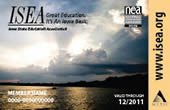 LEWIS CENTRAL
LEWIS CENTRAL DISTRICT LEADERSHIP MEETING
Wednesday, April 30, 2008
Un-Official Minutes
Dr. Schweer called the meeting to order at 2:05 p.m.
Attendance: Mark Schweer, Dave Black, Laurie Thies, Barb Grell, Heather Nano, Rosie Spangenberg, Allison Toman, Laurie Thies, Kent Stopak, Pam Fox, Jeanie Bartholow, Kristen Johnson, Genie Wickham, Kris York, Breanne Hedrick, Ashley Shipp, Jim Haver, Sean Dunphy, Kathie Lincoln, Dave Bergman, Kim Jones, Mary Langille, Chuck Story, Terri Bush, Facilitator, Anna Boehm, Secretary.
Welcome: Dr. Schweer introduced Terri Bush as the Facilitator for this committee. Introductions were made by all in the attendance.
Teri stated that she is here to assist the LC district in working systemically to align curriculum, instruction and assessment in an effort to increase student achievement. (This class can be used for credit, Terri will check into this for those who are interested in the credit hours.)
This committee will be working systemically – working across all levels, components and competencies to improve student achievement. The key elements of the work will be:
• Levels – Classroom, School, District, and the State
• Components include standards, curriculum instruction, assessment resources, staff, parents and community.
• Competencies for improvement – Creating coherence, collecting, interpreting and using data; ensuring continuous professional learning opportunities; building relationships, and responding to changing conditions.
The committee will be planning professional development, problem solving and making decisions on curriculum instruction and assessment.
Team Building Activity – A team building activity was done to get to know and better trust each other. After the activity the group stated that the activity was about:
• communicating
• fun
• shared work
• conditions in the room
• tried alternatives
• not being afraid to be different
• learned from mistakes
• employed the KISS method (keep it simple stupid)
• strong foundation, keep an open mind
Overview of DLT Model & Questions: PLC’s will be used, then building leadership teams, then to the district leadership team. Outcome will be to problem solve and make decisions regarding curriculum, instruction and assessment in a systemic effort to raise the bar and close the gap for all Lewis Central students.
Task Force/Instructional Council – The work that the Task Force has been done is so appreciated. Lewis Central School District would not be where they are today without your leadership. Your efforts are very much appreciated. The Task Force and Instructional Council will no longer exist. Things have changed for LC and the kids. It is time for the district to change and try something new. This work will be done for one year and will be evaluated at that time. Team work is needed, but don’t forget the work the Task Force has done.
Why did this happen? Four audits have been done in this district in three different buildings. Document review and interviews were done at Kreft, Titan Hill & MS. All LC students are getting core instruction. We need to execute the action plan to raise the bar and close the gap for kids.
Terri opened the floor for questions. There were no questions from the group.
Setting Group Norms:
The Group was asked to write down one group norm that they thought was very important.
• Stay focused on the agenda
• Try to understand each other or each buildings perspective
• Act with integrity
• Don’t pull rank
• Treat everyone with respect
• Hard on issues, soft on people
• Keep an open mind
• Be on time
• Ask questions as they arise even if they are dumb or tough
• Share honestly
• Listen to everyone’s point of view
• All ideas are respected
• Argue as if you are right, listen as if you are wrong
• Flexibility
• Treat people right, no side bars
The eight highlighted norms were chosen by the group as their priorities for this committee.
Roles and Responsibilities:
The outcome of this meeting is to develop roles and responsibilities of each person in this room beyond the monthly meetings. Articles were handed out that support this work. How do you see yourself in the leadership role, when you return to your building?
The group participated in an activity with the following charts:
• Catalyst for Change
• Learner
• Classroom Supporter
• Instructional Coach
• Data Coach
• Resource Provider
• School Leader
• Learning Facilitator
• Mentor
• Curriculum Coach
•
Homeplay:
The group was asked to read the article “Why Coaching?” and to use metacognitive markings on the article
! - It may be new – I want to remember and try it
? - I have questions
+ - Aligns with my thinking
Future Issues:
This work will be extended until on May 6. Roles & Responsibilities will be decided on Tuesday, May 6.
Terri asked the group to use index cards to document the following:
• To state the issue and its significance
• Ideal outcome
• Background information
• What you want from the group.
“Characteristics of Effective Coaches” article was handed out for the group to read and they were asked bring this back on May 6.
The next meeting is Tuesday, May 6, 2008 1:00 – 4:00 p.m. at the ERC.
Adjournment:
With no further business before them, at 4:00 p.m. the meeting was adjourned.










